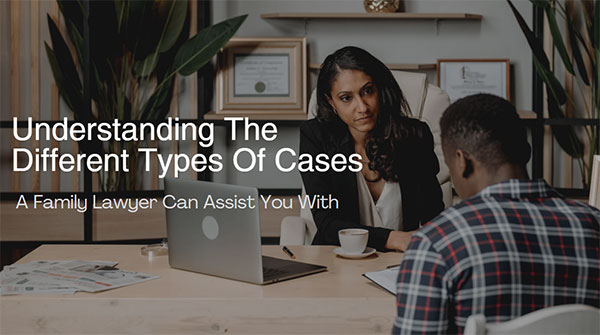Family issues are something many people face today, often arising from misunderstandings or poor communication. Whether it is parents or partners choosing to part ways or families dealing with financial challenges, these struggles are all too familiar.
These situations can occasionally result in a broken family. In fact, 26.4% of children in the U.S., or roughly 19 million, live in single-parent households. Most of these children live with their mothers, while only about 5% live with their fathers.
While many of these challenges can be addressed or settled through open dialogue, some situations require legal support. That’s why it’s essential to reach out to professionals or a mediator who can help ease tensions and foster meaningful conversations.
As Sumter SC family court lawyers say, if the issue gets too complicated, such as disagreements over property division, child support, or alimony, you should consider hiring a family lawyer. But what about less complicated issues? Do you still need a lawyer?
Read on to find out!
Divorce and Custody Battles
Family lawyers can advise on divorce and custody issues. A family lawyer will defend your rights and advocate for you during divorce processes. They can assist you with negotiations, create legal documents, and stand by your side in court. A family lawyer can help ease the stress and uncertainty that come with these challenging situations.
During divorce, a family lawyer can help clarify how property is divided, what spousal maintenance entails, and the arrangements for child custody. They’ll negotiate a reasonable arrangement while protecting your parental rights.
As stated at https://drurypullenlaw.com, family lawyers can fight for custody arrangements that benefit your children. Their expertise can help you deal with the emotional and legal challenges of divorce and custody disputes with confidence.
Estate Planning and Wills
Considering estate planning and wills? Having a plan in place is essential to make sure your assets are shared in the way you want after you pass away. A family lawyer can help you handle the complexities of estate planning, including drafting a will that clearly outlines how you want your property and belongings to be distributed among your loved ones.
A family lawyer can help you set up trusts, establish powers of attorney, and create advance directives to make sure your medical and financial wishes are honored if you ever become unable to make decisions for yourself. These legal documents offer reassurance and help prevent possible disagreements among family members.
A family lawyer can guide you through the tax implications of your estate plan and assist in minimizing the tax burdens on your beneficiaries. By seeking legal advice on estate planning and wills, you can ensure your legacy is protected and your family is well taken care of.
Adoption Processes
Adoption might be complicated, but a family lawyer can help you handle the legal requirements and procedures. A family lawyer can help make domestic or international adoption go smoothly.
A family lawyer can help you explore the different adoption paths that might be right for you, including agency adoptions, independent adoptions, or stepparent adoptions. They can assist you with the paperwork needed for the adoption process, making sure all documents are accurately completed and submitted.
A family lawyer can also represent you in adoption court hearings and advocate for your best interests. They can provide guidance on the rights of birth parents and the regulations surrounding interstate adoption. A skilled family lawyer can alleviate stress and uncertainty, making the adoption process smoother.
Domestic Violence and Abuse
If you or a loved one is abused by domestic violence, get legal help immediately. Domestic abuse is a serious issue that can harm your family. In abusive situations, a family lawyer can help you get a restraining order or protective orders to keep the abuser away from you and your children. They can help you gather evidence, prepare documents, and represent you in court to protect you. They can also explain your rights and options for leaving an abusive relationship while protecting your legal rights.
Mediation and Alternative Dispute Resolution
Engaging in mediation or alternative dispute resolution can provide a more amicable and efficient way to resolve family conflicts outside of court. Mediation provides a supportive environment where a neutral third party assists you and the other party in communicating and negotiating, helping to find a solution that works for everyone involved, rather than getting caught up in lengthy court battles.
This approach encourages both sides to share their worries, needs, and interests honestly, fostering collaboration to reach a solution that respects everyone’s perspective. Opting for mediation instead of litigation can help you save both time and money. Court proceedings often take a long time and can be expensive, while mediation usually offers a faster and more affordable alternative. Additionally, the confidential nature of mediation can protect sensitive family matters from becoming public record.
Conclusion
Family lawyers play a crucial role in addressing the various legal challenges families face. When facing challenging situations like divorce, child custody, or estate planning, or when looking for help with adoption and domestic violence, their knowledge and experience provide essential support for families during tough times. By seeking the assistance of a family lawyer, individuals can deal with these challenges with confidence. Keep in mind that having the right legal support can provide clarity, resolution, and peace of mind in family matters, allowing individuals to move forward with a feeling of security and fairness.






Speak Your Mind